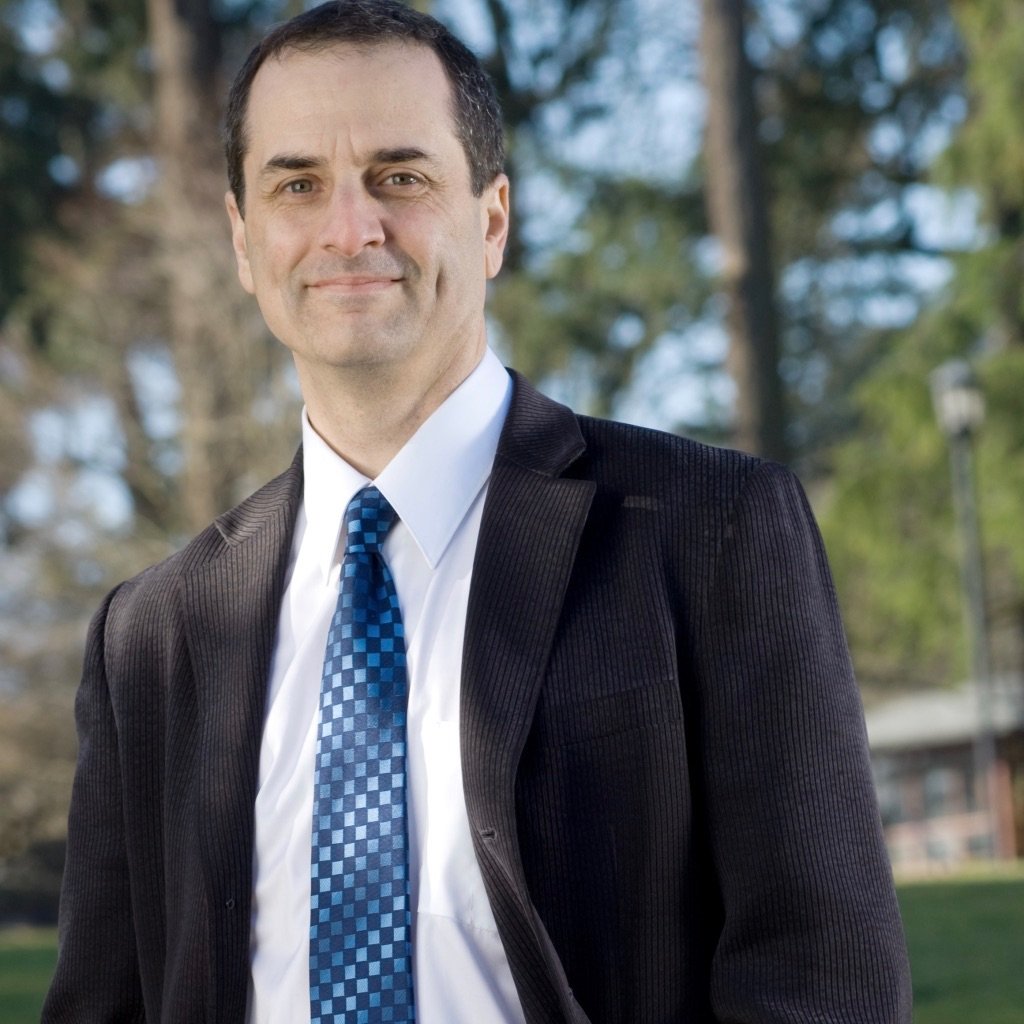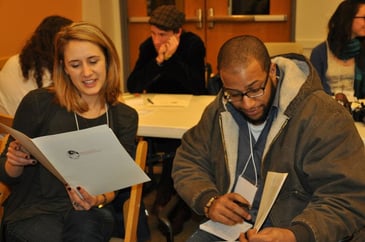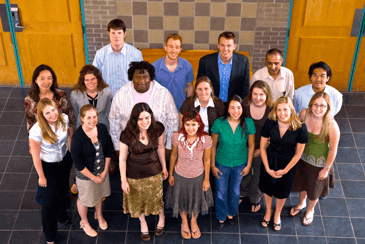Bard MBA Students Go All-In on Competitions, Win at TIPC
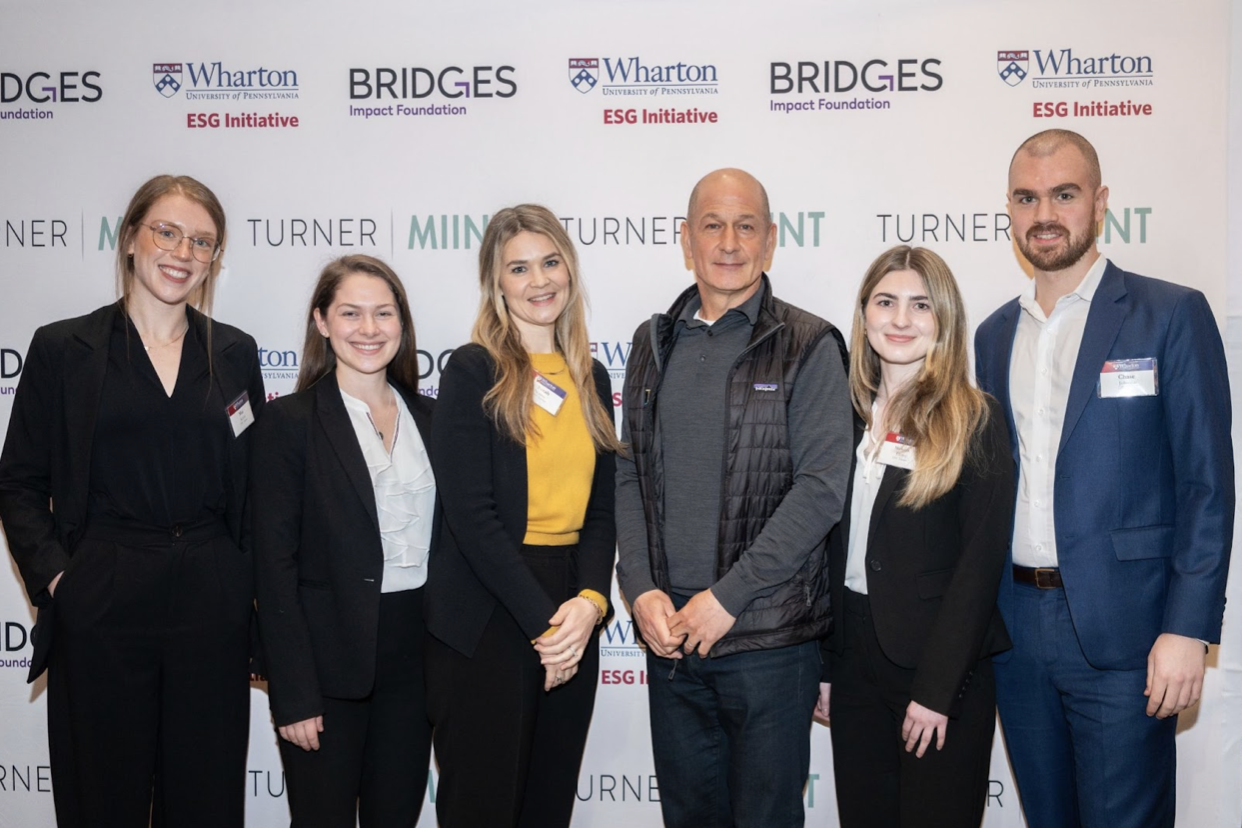
In Spring 2024, six teams of students from the Bard MBA rolled up their sleeves to develop, polish and deliver original business ideas in national case competitions. The subjects ranged across impact finance and circularity strategy. Three Bard teams advanced to the finals, with one claiming victory. All the competitors gained experience from the process and learned from the other teams, while also impressing the competing schools and judges.
Kendall Thompson, Mai Kruvi, Chase Johnson and Michaela Flynn (pictured above) competed in the Wharton Turner Impact Portfolio Challenge (TIPC). The finals were held in Philadelphia, and the Bardians found themselves up against the University of Chicago Booth, Tufts and Fordham. The assignment was to design a portfolio for a fictional state retirement fund, with a mandate to transition investment portfolios towards “Net Zero by 2050,” and maximize other environmental, social, and governance impacts. The team built a climate-first portfolio accompanied by a strong gender lens, and came away with the first-place trophy.
“Our strength was in our creativity and willingness to try different approaches to portfolio construction outside of the norm, and still meet the objectives of a pension and its beneficiaries,” said Johnson. “This helped us to push the boundaries and attempt new approaches to portfolio design.”
"The impact finance faculty at Bard are very proud of the accomplishments of the Bard team," said Professor Randy Strickland who advised the TIPC students – and who has now coached three Bard MBA teams to victory in that competition.“They are showing the power that capital markets can have in driving positive impact and systemic change in the world.”
Earlier in the semester, three other MBA students, Elizabeth Kuzila, Nicole Restani and Sarah Bergman (missing team-mate Erin Seglem), traveled to Vancouver, Canada to compete in the final round of the Net Impact Competition for the luxury brand Aritzia. Of the five finalists, Bard was one of two US teams, with the other being the University of Michigan’s Ross School of Business. The prompt was how to market responsible consumption to the consumer. The team laid out an aggressive plan that reduced 80% of physical production while profiting instead, through education, community engagement, and product life cycle extension. Bard technically didn’t win; the judges told them their plan was “too bold,” which is still a win by Bard standards.
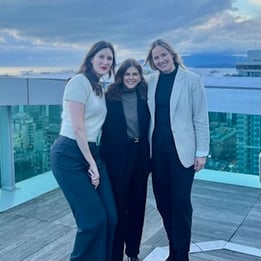
Bergman credited Bard Professor John Holm with teaching them to “push the radical.” She said, “If we had to do it over again, we’d pitch the same thing.”
Restani from the Aritzia team competid in another Net Impact event with Sebastian Weeks: the Coke Circular Plastics Case Competition. The team presented an innovative in-store deposit and rewards system targeted at encouraging kids to encourage parents to recycle. As their mentor pointed out, the team's proposal rated high on the impact scale since it focused on fixing the upstream problem of low recycling rates, rather than being just a technical improvement.
Finally, three different Bard teams competed in the Kellogg Morgan Stanley Sustainable Investing Challenge in Spring 2024. Sebastian Weeks (again) and Lenny Reisner proposed Regenerative Agriculture SPV Bonds; Elaina Zachos and Amber Dean developed an idea for a sustainable REIT to encourage climate migration from high-risk, coastal areas to low-risk, inland cities; and Raquel Bell, Casey Smith, Jackson Thompson and Tongwen Wang proposed an Amazonian Incubator Investment Fund focused on Ribeirinho communities.. While none of the teams made it through to the finals, the students were still able to utilize the challenge to apply what they have been learning in the Bard MBA in Sustainability to develop innovative solutions.
"Participating in competitions has given me the opportunity to dive deeper into matters of interest and unleash creative solutions to global challenges," said Reisner, who is a veteran of multiple competitions while at Bard. "As a 43-year-old career changer, these challenges helped build my resume and skill sets. I look forward to seeing many more Bard MBA students flourish in competitions, and lead the change to a better future."
Get a sustainable business degree at Bard
Want an MBA where sustainability is baked in, not bolted on? Are you interested in learning how to frame sustainability opportunities as business opportunities, investing in climate change solutions, using compelling storytelling, employing change management principles, and more?
To learn more about Bard’s MBA in Sustainability – and some of its areas of focus, including sustainability consulting, impact finance, and circular economy – download our guide: the MBA of the Future.
